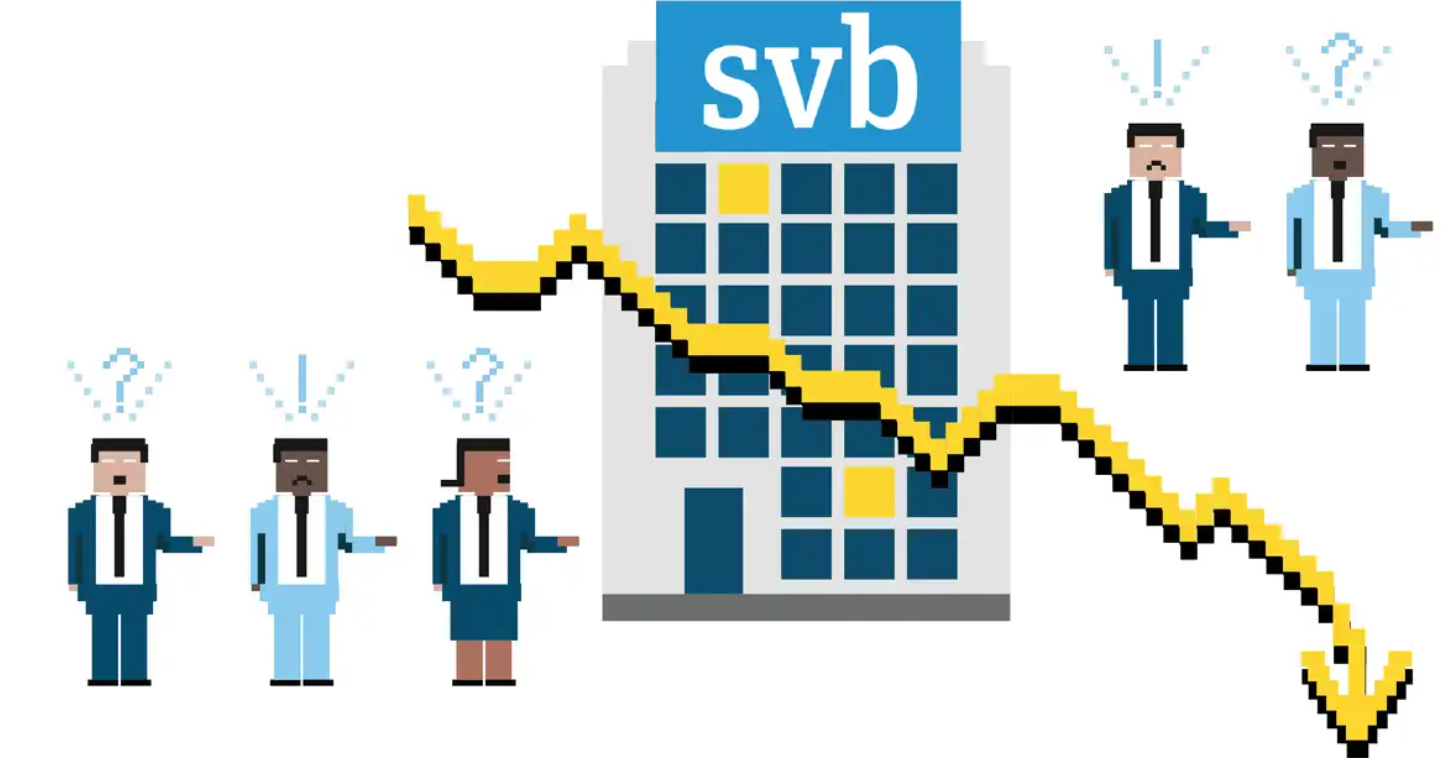



We get your business up and moving. We are a passionate bunch of number crunchers /budget heads. Whether it be an entire overhaul of your accounting department, managing your payrolling, or simply serving you as a bookkeeper – we are here.

Have you ever wondered what occurs if your bank fails? You depend on a reliable banking partner to support business success as a business owner. However, banks can fail; when they do, your world may crash.
Do you have a plan to access money and keep your operations going if this were to happen to your business bank? The SVB & Signature Bank incident should serve as a lesson to all business owners and a wake-up call. The following information will help you be ready for the unthinkable.
How Entrepreneurs Rely on Banks for Start-up Financing
Obtaining funding for your firm is one of the major obstacles you’ll encounter as an entrepreneur. Whether through company loans, lines of credit, or other financing options, banks significantly provide money for start-up companies.
You are significantly impacted when a large bank fails. Take SVB & Signature Bank as an illustration. It once ranked among the top Silicon Valley banks for start-ups and venture capital businesses. They were your go-to source for operating and growth capital if you were an entrepreneur banking with them.
Many firms were forced to scramble to locate new financial partners and finance quickly after their collapse. Some closed their doors after being unable to obtain additional funds in time.
Business owners frequently had to pay higher rates on new loans at a time when stability was most required.
Time-consumingly developed, valuable financial ties were lost. Entrepreneurs had to re-prove their company plans and financials with new banks, starting from scratch.
While there are undoubtedly lessons here for more diversification and preparing for the worst-case scenario, it is difficult for a small business owner to anticipate or mitigate the failure of a significant financial partner.
It is possible to lessen risks, but there is no way to remove them. Strong connections, cautious selection of banking partners, and preparation for unforeseen disruptions can all assist.
Every entrepreneur should know that change is the only thing that stays the same. Your ability to adapt and be resilient will benefit you.
The Timeline of the Fall of Silicon Valley Bank and Signature Bank 2023
The Fall of Silicon Valley Bank
Numerous factors contributed to the failure, including a lack of diversification and a traditional bank run, in which customers withdrew funds totalling $42 billion at once out of concern for the bank’s stability.
SVB invested significantly in long-term US treasuries and agency mortgage-backed securities using bank deposits. However, as interest rates rise, the value of bonds and treasuries decreases.
SVB’s bond holdings started to decline when the Federal Reserve raised interest rates in 2022 to battle inflation.
The Federal Deposit Insurance Corporation (FDIC) seized SVB after regulators intervened. Deposits were returned; however, their lending arm was closed.
Thousands of start-ups and scaleups that rely on SVB for growth capital were affected.
The Fall of Signature Bank
Seeing an opportunity, Signature Bank immediately developed its start-up lending business to fill the hole left by SVB. Entrepreneurs first flocked to them. On the other hand, Signature committed many of the same mistakes as SVB, taking on too much risk and failing to diversify its start-up portfolio.
The signature also failed when a second Bitcoin crash occurred in 2023. Entrepreneurs now had very few options for banking and financing arrangements that were tailored to their specific needs.
Lessons for Entrepreneurs
These failures highlight the importance of entrepreneurs diversifying their finance sources and banking relationships:
1. Don’t rely on a single lender for most of your capital requirements. Spread your risk across several institutions in case of problems.
2. Consider established banks as well as “startup banks.” Established banks may develop more slowly but are less likely to fail. They are also branching out into startup lending.
3. “CEOs and CFOs should be exploring with their bankers the differences between their bank and Silicon Valley Bank,” says Russ Holland, CEO of Fieldpoint Private Bank.
4. Seek finance from sources other than banks. Seek venture capital, private equity, crowdsourcing, and different ways to diversify your funding.
5. Make personal ties at several banks. If one fails, you have contacts at other universities to fall back on. These connections might assist your firm in maintaining service continuity.
6. “CEOs and CFOs should be collaborating with banks as well as their customers, investors, and even regulators to build trust and transparency,” says PJ Gupta, CEO of startup Checkbook, a digital payments platform backed by JPMorgan.
7. In any event, see what your bank or banks can do. “Can you negotiate with your bank to maintain excess FDIC insurance?” asks Michael Tomasulo, senior managing partner with Baldwin Risk Partners, a risk-management firm.
8. Companies should always have a 13-week cash-flow projection and run stress tests to see how the next 13 weeks will play out.
9. “Ask your bank if it tests its credit lines for backup liquidity and knows they’re available, and if so, what percentage of its deposits does availability of those lines represent?” says Craig Scheef, CEO of Texas Security Bank in Dallas.
10. “I’m encouraging all business owners to stay close to your sources of capital,” says Craig Scheef, CEO of Texas Security Bank in Dallas.
11. Unconventional means of financing options: U.S. Small Business Administration (SBA)
Conclusion
So, there you have it, the narrative of how two once-promising banks went bankrupt and the lessons we may learn from them. The story’s takeaway for an entrepreneur is simple: spread your risk, and CEOs and CFOs must actively participate in banking relationships.
And, if something goes wrong, have a backup plan to retrieve your funds as soon as possible.
The life of an entrepreneur is risky enough, don’t add to the risk by banking on the wrong partner. Choose wisely, and you’ll sleep better knowing your money and your business’s future are secure.
Suppose you are launching your business and aiming to manage your finances effectively. In that case, it is highly advisable to seek the expertise of a reputable finance and management consulting firm like GJM & Co. GJM & Co., a prominent outsourcing firm, provides advice and services for business formation and offers Virtual CFO & Controller services. Our team of experienced professionals at GJM can provide comprehensive financial solutions and insights to help you achieve your business objectives. Should you have any queries or need consultation, Schedule a Call today or write to us at info@gjmco.com